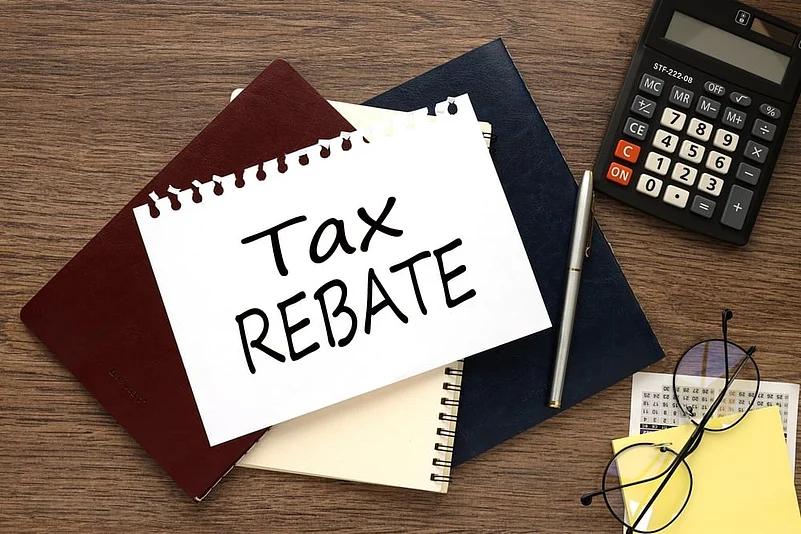There has been a significant change in the applicability of the Section 87A rebate to capital gains following the Budget.
At present, under the new tax regime, resident individuals with a total income up to Rs 7 lakh are eligible for a rebate of Rs 25,000 under Section 87A.
“However, the Budget has proposed to enhance this rebate for the financial year 2025-26 (the assessment year 2026-27), increasing the rebate limit to Rs 60,000 for individuals with a total income up to Rs 12 lakh,” says Rahul Singh, senior manager, Taxmann, tax and corporate advisor.
“The Budget has clarified that the Section 87A rebate will not apply to income taxed at special rates, such as short-term or long-term capital gains, lottery winnings, or online gaming income. Taxpayers cannot use the rebate to reduce their tax liability on these incomes. As a result, even if one’s total income is below Rs 12 lakh, he will still be required to pay tax on these specific earnings,” he says.
For instance, if a person has a total income of Rs 13 lakh, which includes Rs 3 lakh from long-term capital gains (LTCG), he will be eligible for the rebate for only the part of income that comes under the regular slab rates.
Taking exemptions into account, the LTCG would be taxed at 12.5 per cent, and the person would still owe taxes on that amount despite their total income being above the rebate threshold.
Why A Clarification Was Required
“This clarification stems from past issues concerning the automated e-filing system used by the income tax department. The controversy originated from a provision under a law allowing the rebate only for individuals with taxable incomes below the prescribed threshold,” says Suresh Surana, a Mumbai-based chartered accountant.
The utility used for e-filing was designed to block rebate claims automatically for income exceeding the threshold. However, this unilateral implementation—without due notification or consultation—resulted in an unjust increase in tax liabilities for affected taxpayers, causing widespread financial and procedural hardship.
Adds Surana: “Taxpayers who had filed their income tax returns (ITRs) before the release of the updated utility on July 5, 2024 also faced significant issues. Many had legitimately claimed the Section 87A rebate as per the provisions of the Income-tax Act, 1961, but later received demand notices from the Income Tax Department disallowing their rebate claims, even for returns filed prior to the faulty utility update.”
After the presentation of the Union Budget, there are certain categories to which Section 87A would not apply, such as income from capital gains, lotteries, and other categories taxed at special rates excluded from the Section 87A rebate.
Consequently, a Public Interest Litigation (PIL) was filed in the Bombay High Court (The Chamber of Tax Consultants vs. Director General of Income Tax (Systems) & Ors.). The High Court took cognisance of the flaws in the e-filing utility introduced on July 5, 2024, and ruled that the rebate under Section 87A is a substantive right of taxpayers and cannot be denied. The court finally declared that the taxpayers could file a revised return after calculating the rebate under Section 87A, which would enable them to claim a refund in their revised return.
Section 87A rebate will not be relevant for income from capital gains, lotteries, and other such categories taxed at special rates, which are now excluded from the rebate.
“Thus, taxpayers should be mindful that while they can benefit from the increased rebate for regular income, they will still face tax liabilities on capital gains and other special rate incomes, necessitating careful tax planning,” says Surana.
Alternate Options Available To Reduce Tax
If the Section 87A rebate no longer applies to capital gains, small taxpayers may explore the following alternative tax-saving options to reduce their tax liabilities.
Section 54 (For Residential Property Sellers): Exemption on capital gains from the sale of a house if reinvested in another residential property within the prescribed time.
Section 54EC (Capital Gains Bonds): Long-term capital gains from the sale of land or building can be invested in specified bonds (e.g., RECL, PFCL) within six months, subject to a limit of Rs 50 lakh.
Section 54F (For Sale of Any Capital Asset Except Residential Property): Full exemption on long-term capital gains if the proceeds are used to purchase a new residential house, subject to conditions.










